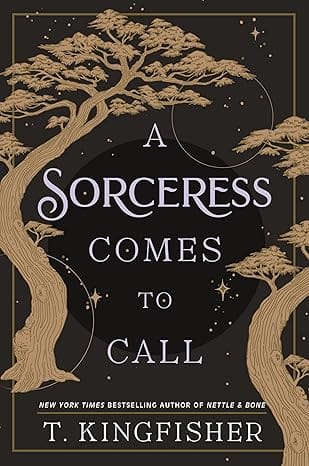On Repentance and Repair

We've all seen it and maybe even experienced it: Someone makes a mistake that harms someone else. They offer an apology, say that they've learned and will do better next time. It's the victim's responsibility to sort out their healing and, so much of the time, those promised changes in behaviour on the wrongdoer's part never come to pass. Rabbi Danya Ruttenberg's book, On Repentance and Repair: Making Amends in an Unapologetic World offers another way to approach these situations.
From the publisher's blurb:
American culture focuses on letting go of grudges and redemption narratives instead of the perpetrator’s obligations or recompense for harmed parties. As survivor communities have pointed out, these emphases have too often only caused more harm. But Danya Ruttenberg knew there was a better model, rooted in the work of the medieval philosopher Maimonides.
For Maimonides, upon whose work Ruttenberg elaborates, forgiveness is much less important than the repair work to which the person who caused harm is obligated. The word traditionally translated as repentance really means something more like return, and in this book, returning is a restoration, as much as is possible, to the victim, and, for the perpetrator of harm, a coming back, in humility and intentionality, to behaving as the person we might like to believe we are.
Maimonides laid out 5 steps: naming and owning harm; starting to change/transformation; restitution and accepting consequences; apology; and making different choices. Applying this lens to both our personal relationships and some of the most significant and painful issues of our day, including systemic racism and the legacy of enslavement, sexual violence and harassment in the wake of #MeToo, and Native American land rights, On Repentance and Repair helps us envision a way forward.
Rooted in traditional Jewish concepts while doggedly accessible and available to people from any, or no, religious background, On Repentance and Repair is a book for anyone who cares about creating a country and culture that is more whole than the one in which we live, and for anyone who has been hurt or who is struggling to take responsibility for their mistakes.
Rabbi Danya Ruttenberg is an award-winning author and writer who serves as Scholar in Residence at the National Council of Jewish Women. She was named by Newsweek as a “rabbi to watch,” a “faith leader to watch” by the Center for American Progress, received the Lives of Commitment Award from Auburn Seminary, has been a Washington Post Sunday crossword clue (83 Down) and called (in her younger days) a “wunderkind of Jewish feminism” by Publishers Weekly.
Rabbi Ruttenberg is very active on social media and regularly publishes a newsletter called Life is a Sacred Text. She is well worth following and subscribing to. (And no, this is not a paid endorsement, I am genuinely a huge fan of her writing and work.)
This book focuses on repentance as described in Judaism, particularly looking at the work of Maimonides, a twelfth-century philosopher and Torah scholar. This view of repentance stresses accountability and repair of damage done over apologies. It also addresses the common problem of avoiding consequences by claiming good intent. As though a statement beginning with "I didn't mean to hurt anyone..." absolves the speaker of the consequences of their words and actions.
The five-step summary of this process of making amends looks like this:
- Naming and owning the harm one has caused
- Starting to change one's thinking and behaviour
- Making restitution and accepting the consequences of one's actions
- Making apology
- Making different choices
This is not a short process and, depending on the harm done, may take the rest of the perpetrator's life to repair. The focus is on repairing damage done and demonstrable changes of behaviour on the part of the one who did harm. This is a marked—and, for me, welcome—contrast to much of the societal focus here in Canada on apologies which very often are followed with no action or meaningful change. The consistent demand for accountability, repair, change, and care for the victims of harm shapes a process which fosters real healing, not just "getting over it".
Following this outline, Rabbi Ruttenberg takes us through examples of how this process might appear in different situations including personal relationships, accountability in public, institutional obligations, and forms of national repentance. The book finishes with some strong discussion about consequences, restorative justice, forgiveness and pardon, and what atonement means.
I was impressed at the clear depth of research undertaken in the writing of this book. Many examples are American, which makes sense in many ways. But the Canadian Truth and Reconciliation process gets a look here, as does the South African process. The book focuses on repentance as described by Maimonides, but Rabbi Ruttenberg does a wonderful job of making the principles accessible and employable by anyone.
I usually try and provide some kind of critique of the books I discuss here. In the case of On Repentance and Repair, I really don't have one to offer. I think Rabbi Ruttenberg has done a masterful job of researching and presenting a difficult topic and a viewpoint on that topic which does not conform to common public practice these days.
In my own context, I think this book should be mandatory reading in classes on pastoral care and congregational development and management. Really, for anyone in church leadership. This would make an excellent book study for any group interested in repentance, forgiveness, and reconciliation. Honestly, I think just about anyone would benefit from reading this and thinking about its principles seriously in their own lives. There is much here for individuals, communities, and institutions like churches.
Overall, this book is excellent. I recommend it to anyone interested in the subject matter and will almost certainly be giving copies away as gifts to friends and colleagues when the paperback edition becomes available on 12 September 2023.





